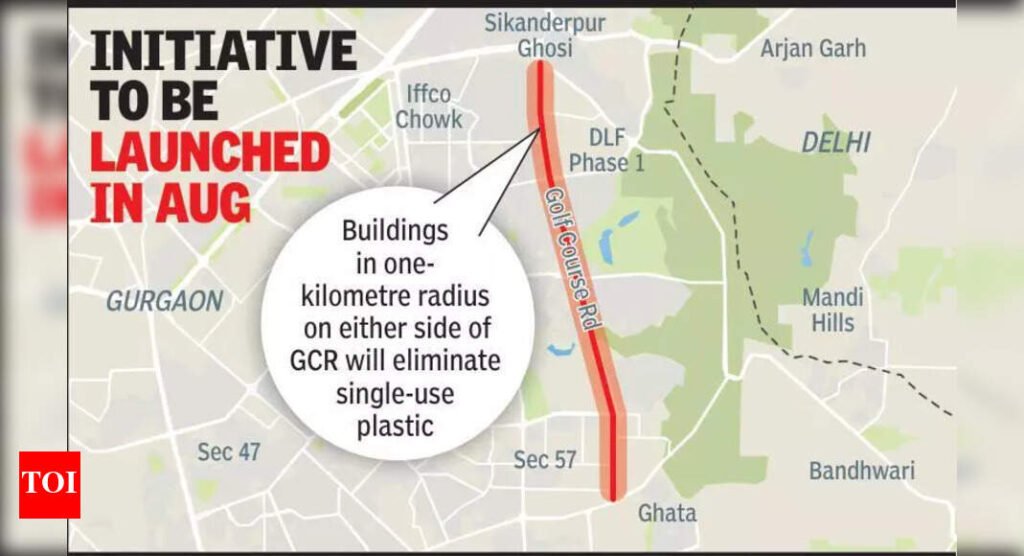Gurgaon: Starting with Golf Course Road, Haryana’s pollution control board HSPCB will start handing out eco-friendly items to residents and businesses to help the city eliminate single-use plastics.HSPCB officials told TOI they will launch the initiative from the Golf Course Road and cover a radius of one kilometre in the first week of Aug. The drive will include commercial buildings, residential societies, schools and roadside vendors. The idea is simple, officials said, eliminate single-use plastic from one of the city’s most prominent stretches and set a precedent for sustainable urban lifestyle.Instead of taking penal action for flouting the ban on single-use plastics, the board is opting for a transition phase that gives people time and tools to adapt.Over the next three months, HSPCB teams will provide paper, cloth and biodegradable alternatives of single-use plastics to residents and businesses. A buffer stock of biodegradable materials is being built to support the change.“We want this to be real, not symbolic. It’s not enough to ban plastic; we need to make sure people have substitutes before we ask them to stop using it,” said Akanksha Tanwar, HSPCB regional officer, Gurgaon.This preparation period, officials believe, will reduce resistance and confusion when enforcement begins. HSPCB is also working with resident welfare associations (RWAs) to drive awareness campaigns. Engagement with vendors and shopkeepers, often the biggest users of disposable plastic, is part of the strategy too.“If this pilot on Golf Course Road works, the model will be gradually expanded to other parts of the district. The idea is to treat this stretch as a testing ground for how to go plastic-free in a real-world setting,” Tanwar said.Around 14% of all plastic waste generated in the state ends up in landfills, according to an annual report published by HSPCB last year.The state recycles approximately 78% of its plastic waste, the report said, but it also pointed out an alarming rise in plastic waste generation – a 38% increase from 129,866.7 tonnes in 2022-23 to 179,406.5 tonnes the next fiscal year.This is despite the ban on single-use plastics (SUPs) imposed nationwide from July 1, 2022.Single-use plastics include plastic bags, straws, cutlery, plates, food and beverage containers, coffee cups and lids, drink stirrers, cigarette butts, balloons and balloon sticks, wrappers, wet wipes, and most plastic packaging designed to be used once and discarded.According to the Centre for Science and Environment (CSE), plastic packaging that is not covered under the ban and is abundantly used to pack processed food items contributes to 60% of the waste generated.Data from the International Union for Conservation of Nature (IUCN) says the world produces over 300 million metric tonnes (MT) of plastic every year. Of this, 14 million MT ends up in the ocean. It estimates that India generates 3.5 million metric tonnes of plastic waste annually, or around 9,500 MT daily, and the country’s waste generation has doubled over the past five years.“While the intent behind India’s plastic ban has been commendable, enforcement has largely fallen short due to inadequate alternatives, patchy monitoring and a lack of coordinated waste management. That said, I am cautiously optimistic about the focused approach being tried on Golf Course Road. If authorities ensure genuine availability of eco-friendly substitutes and involve communities actively, this pilot could set a practical example for other regions to follow,” said Shubhansh Tiwari, a research associate at CSE.


